Find Help
More Items From Ergsy search
-
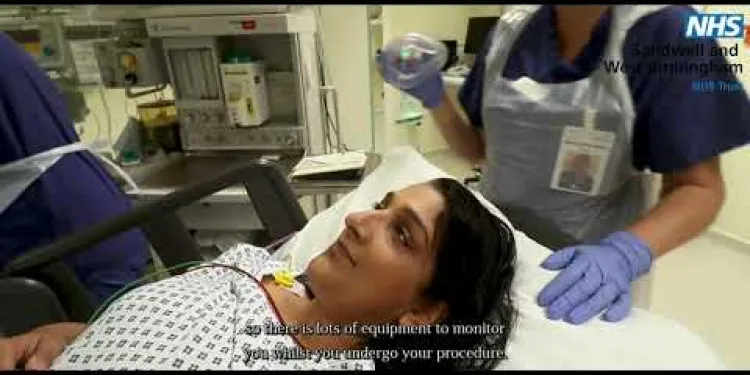
What to expect when visiting our hospitals for surgery | Theatres
Relevance: 100%
-
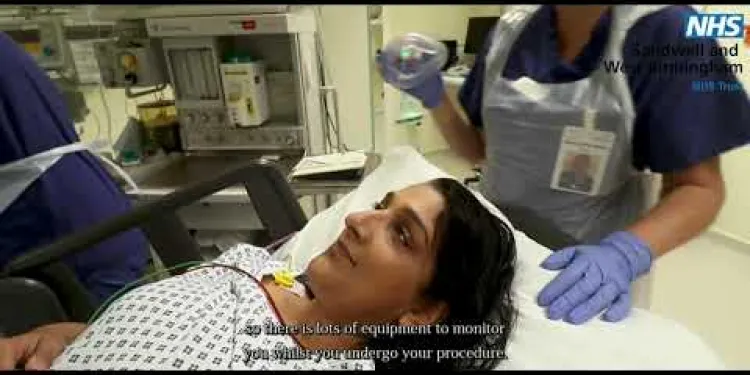
What to expect when visiting our hospitals for surgery | Theatres
Relevance: 99%
-
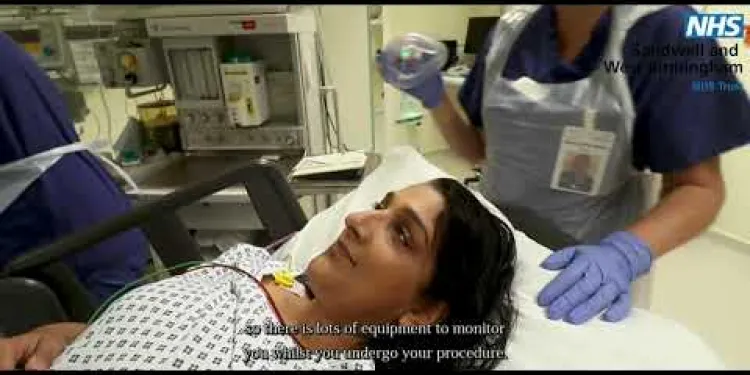
What to expect when visiting our hospitals for surgery | Theatres
Relevance: 97%
-

Undergoing day case surgery at University Hospitals Bristol
Relevance: 69%
-
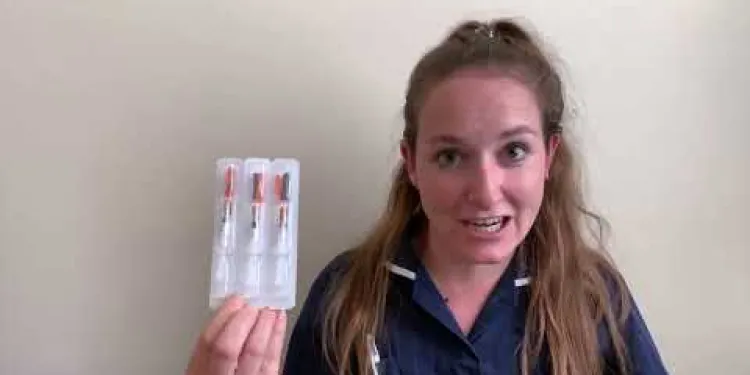
Bariatric Surgery - What to expect when you come to hospital for your operation.
Relevance: 64%
-
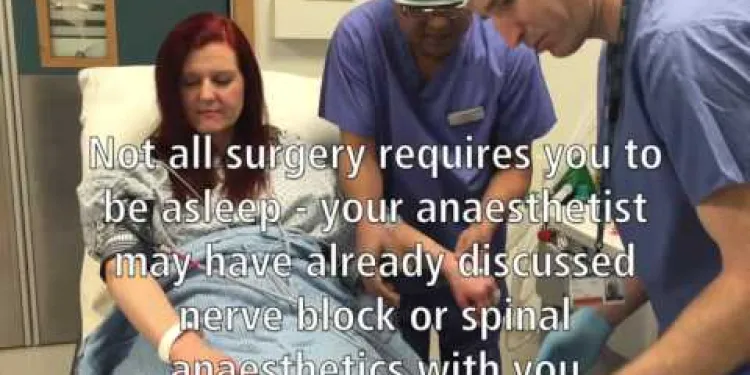
Your Operation at East Surrey Hospital
Relevance: 57%
-

What factors affect the waiting time for my surgery?
Relevance: 56%
-

Are waiting times for operations the same across all hospitals?
Relevance: 54%
-
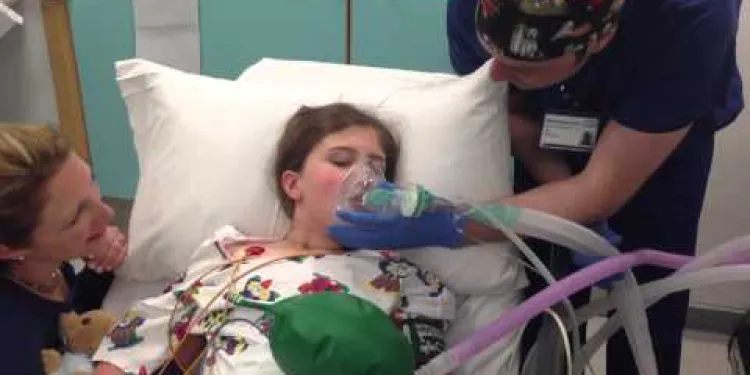
My General Anaesthetic: What's Going To Happen? Sarah's Story at Worcestershire Royal Hospital.
Relevance: 50%
-
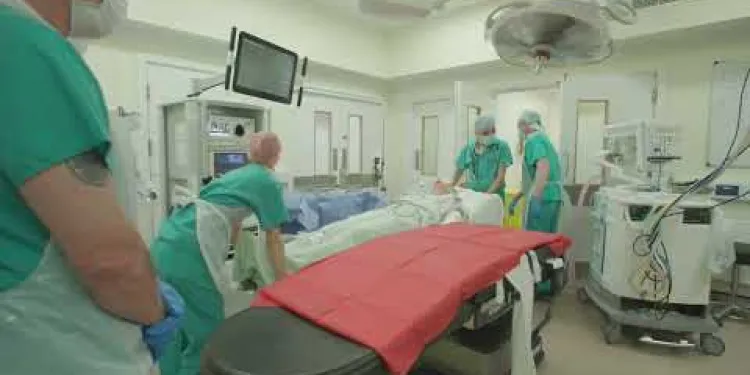
Prostate Surgery
Relevance: 49%
-

How long does a hip replacement surgery take?
Relevance: 48%
-
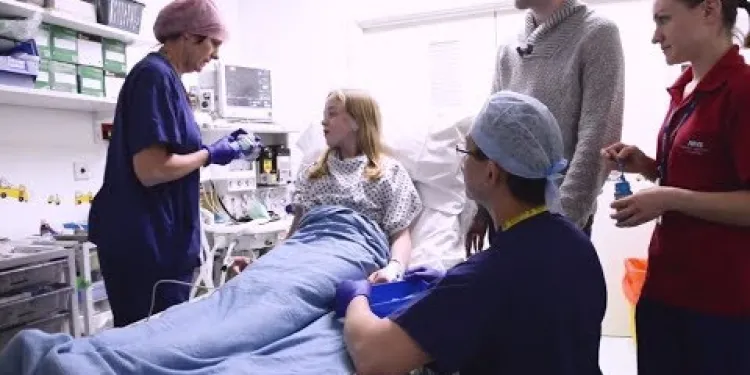
Having an operation in Oxford Children's Hospital with YiPpEe
Relevance: 47%
-

How much does hip replacement surgery cost in the UK?
Relevance: 45%
-
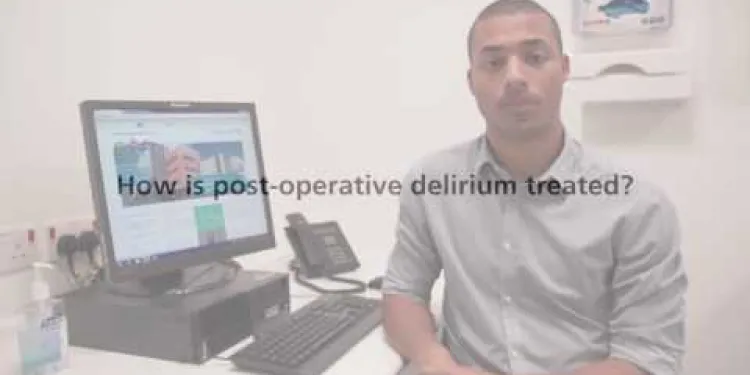
Experiencing delirium after surgery
Relevance: 45%
-
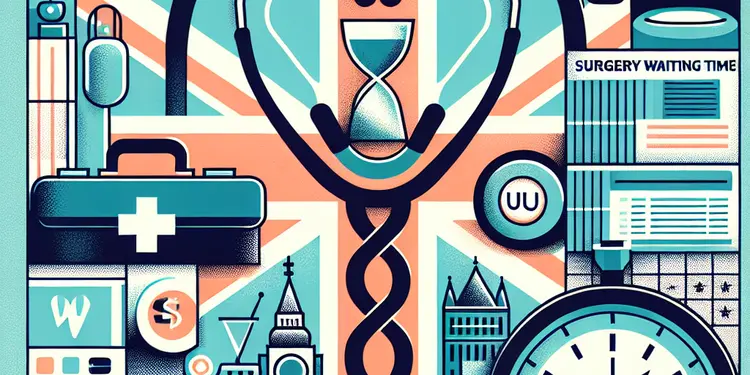
Who should I contact for questions about surgery waiting times?
Relevance: 44%
-

How do AI-assisted robotic systems enhance lung cancer surgeries?
Relevance: 43%
-
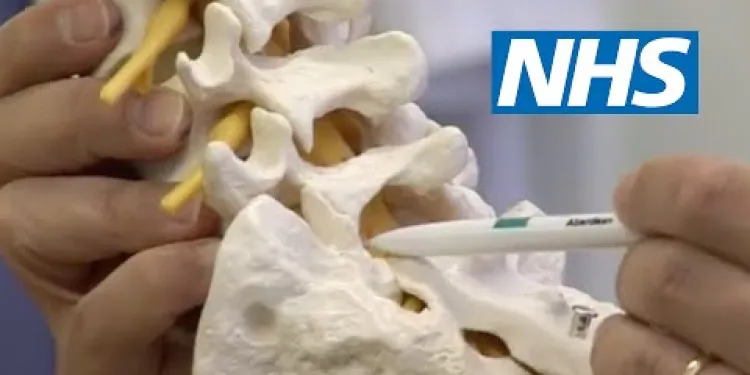
Lumbar surgery | NHS
Relevance: 43%
-

Inpatient Surgery at North Bristol NHS Trust
Relevance: 42%
-

How do I prepare for hip replacement surgery?
Relevance: 42%
-

Delirium: A Patient Story at Leicester's Hospitals
Relevance: 42%
-

Is there a national database for checking waiting times for surgeries?
Relevance: 42%
-
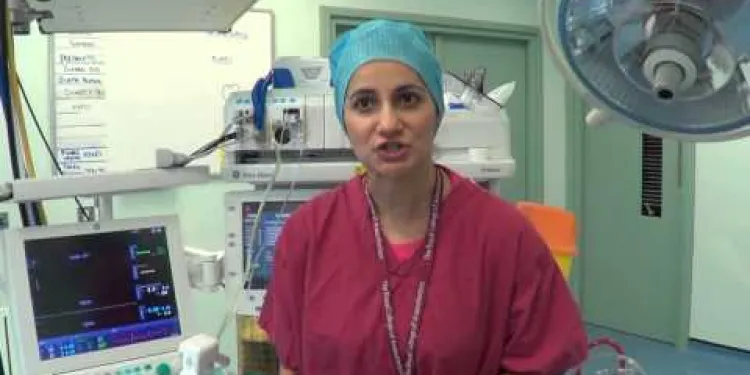
Enhanced Recovery After Surgery in Forth Valley
Relevance: 41%
-

How does surgery treat prostate cancer?
Relevance: 41%
-

How can I advocate for a shorter wait time for my surgery?
Relevance: 40%
-

Evidence-Based Interventions: haemorrhoid surgery
Relevance: 40%
-

Do private hospitals have shorter waiting times for operations?
Relevance: 40%
-

How long will I stay in hospital after a C-section?
Relevance: 39%
-

On the day of your cataract surgery
Relevance: 39%
-
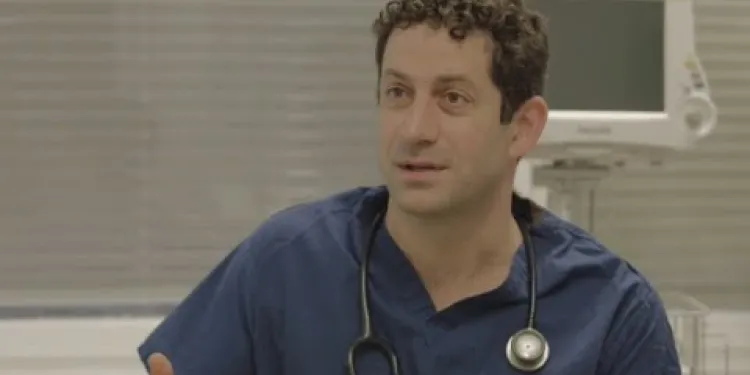
What to expect on the day of your operation
Relevance: 39%
-

Will changing my surgery date impact my waiting time?
Relevance: 38%
-

Weight Loss Surgery
Relevance: 38%
-

Will language barriers be an issue in EU hospitals?
Relevance: 38%
-
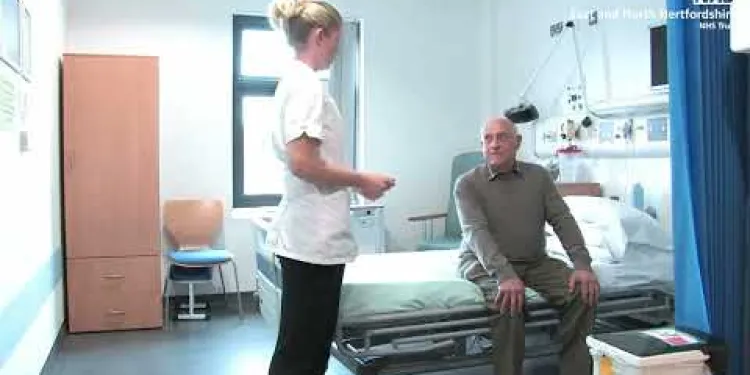
A journey to hip surgery
Relevance: 37%
-

How do I know if my surgery is considered elective or urgent?
Relevance: 37%
-
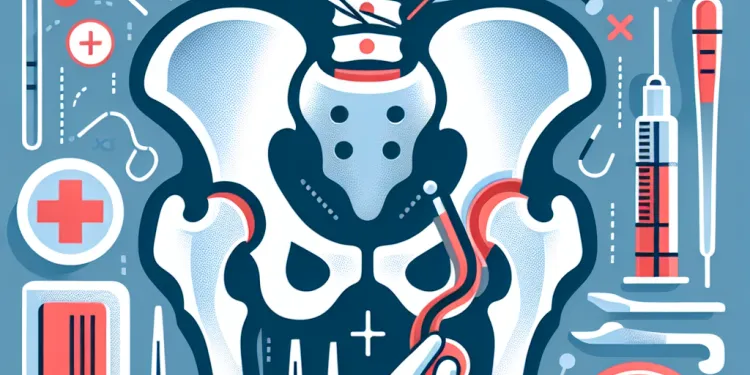
What is minimally invasive hip replacement surgery?
Relevance: 37%
-

Thyroid eye disease. Squint surgery - The operation
Relevance: 37%
-

Is surgery always required to treat flesh-eating disease?
Relevance: 37%
-

What are the side effects of prostate cancer surgery?
Relevance: 36%
-
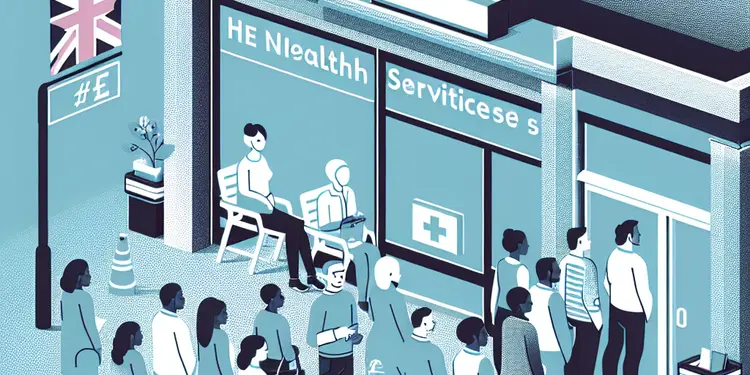
How can I find current waiting times for operations in my local hospital?
Relevance: 36%
-

Is surgery necessary for Crohn's disease?
Relevance: 36%
What to Expect When Visiting Our Hospitals for Surgery | Theatres
Introduction
Visiting a hospital for surgery can be a daunting experience. Our hospitals strive to make this experience as smooth and comfortable as possible. Here’s a guide on what you can expect when you visit us for surgery, including pre-operative preparations, the surgical process, and post-operative care.
Pre-Operative Preparations
Before your surgery, you will have a pre-assessment appointment where our medical team will review your medical history, perform necessary tests, and discuss the procedure. You will be informed about any pre-operative instructions, such as fasting requirements. It’s important to follow these guidelines to ensure the best outcomes.
Arrival and Admission
On the day of the surgery, arrive at the hospital at the designated time. You will be directed to the admissions desk where the administrative team will confirm your details. You’ll then change into a hospital gown and personal belongings will be safely stored. Our nursing staff will be available to address any last-minute questions or concerns you may have.
The Surgical Process
When it’s time for surgery, you will be taken to the operating theatre. Our theatres are equipped with state-of-the-art technology to ensure a safe and efficient procedure. An anaesthetist will administer anaesthesia, either general or local, depending on the type of surgery. The surgical team, which includes a surgeon, surgical assistants, and nurses, will perform the operation with utmost precision and care.
Post-Operative Care
After the surgery, you will be moved to the recovery room where nurses will monitor your vitals as you wake up from anaesthesia. Once stable, you will be transferred to a ward where you’ll receive further care. The medical team will provide pain management, wound care instructions, and follow-up appointment details. You may need to stay in the hospital for a few hours to several days, depending on the complexity of your surgery.
Discharge and Recovery
Upon discharge, you will be given a care plan that includes guidance on medications, physical activity restrictions, dietary recommendations, and signs of complications to watch for. It’s crucial to adhere to these instructions for a smooth recovery. If any concerns arise, you should contact the hospital immediately.
Conclusion
Our hospitals are committed to providing high-quality surgical care. By understanding what to expect before, during, and after your surgery, you can approach the experience with greater confidence and peace of mind. Do not hesitate to reach out to our staff with any questions throughout your surgical journey.
What to Expect When Visiting Our Hospitals for Surgery | Theatres
Introduction
Going to the hospital for surgery can be scary. We want to make it easy and comfortable for you. This guide will tell you what happens before, during, and after your surgery. It will help you know what to expect.
Before Your Surgery
Before your surgery, you will visit us for a pre-check. The doctors will talk to you about your health and do some tests. They will tell you what you need to do, like not eating for a certain time. It is important to follow these rules so everything goes well.
Getting to the Hospital
On the day of your surgery, come to the hospital at the time they tell you. Go to the admissions desk to check in. You will change into a hospital gown, and we will keep your things safe. Nurses are there to answer any questions you have.
During the Surgery
When it's time for surgery, you will go to the operating room. Our equipment is very good and helps us do the surgery safely. A doctor will give you medicine so you don't feel pain. The surgery team will take care of you during the operation.
After the Surgery
After the surgery, you will go to a recovery room. Nurses will check on you as you wake up. When you are ready, you will move to another room. Doctors and nurses will help with pain and explain how to care for yourself. You might stay in the hospital for a few hours or days.
Going Home and Getting Better
When you leave the hospital, you will get instructions on what to do at home. This includes taking medicine and what you can or can't do. Follow these rules to get better quickly. If you have questions or problems, call the hospital right away.
Conclusion
We want to give you the best care during your surgery. Knowing what happens before, during, and after can help you feel better about your surgery. Our staff is here to help you anytime. Don't hesitate to ask questions.
Frequently Asked Questions
What should I bring with me to the hospital for my surgery?
You should bring any medications you are currently taking, your hospital appointment letter, personal identification, loose-fitting clothing, and any toiletries you may need.
Can I eat or drink before my surgery?
No, you will typically be instructed to fast (no food or drink) for a certain period before your surgery. Your healthcare team will provide specific instructions.
Where do I go when I arrive at the hospital?
Upon arrival, follow the signs to the main reception or admission desk for instructions. You may be directed to a pre-operative waiting area.
Will I need to fill out any forms before my surgery?
Yes, you may need to complete consent forms and other necessary paperwork. These will be provided by your healthcare team.
What can I expect during the pre-operative procedure?
You will undergo a pre-operative assessment, which may include blood tests, physical examination, and discussions about your medical history and any allergies.
What if I feel anxious before my surgery?
Feeling anxious is normal. Speak to your nurse or surgeon about your concerns. They can provide information and reassurance to help ease your anxiety.
How will I be anaesthetised for my surgery?
The type of anaesthesia you receive (local, regional, or general) will depend on your surgery. Your anaesthetist will discuss this with you before the procedure.
What happens if I have a medical condition or am taking medication?
Inform your healthcare team about any medical conditions or medications you are taking. They will provide guidance and may adjust your treatment plan as necessary.
How long will I stay in the hospital after my surgery?
The length of your hospital stay will depend on the type of surgery and your recovery progress. Your surgeon will provide an estimated timeframe.
Can I have visitors while I’m in the hospital?
Visitor policies vary by hospital. Check with the hospital's reception or your healthcare team to understand the specific visiting hours and policies.
What should I do if I have questions after my surgery?
You can always contact your healthcare team or the hospital for any questions or concerns after your surgery. They will provide necessary support and information.
How will I manage pain after surgery?
Your healthcare team will provide a pain management plan, which may include medications and specific instructions on how to manage discomfort.
When can I return to normal activities after my surgery?
This depends on the type of surgery and your personal recovery. Your surgeon will provide you with guidelines on when it is safe to resume normal activities.
Will I need someone to take me home after surgery?
Yes, it is recommended to have someone drive you home and stay with you, especially if you have had general anaesthesia or sedation.
How do I care for my surgical wound at home?
You will receive specific wound care instructions from your healthcare team, including how to keep the area clean and signs of infection to watch out for.
What do I need to take to the hospital for my surgery?
Here is a simple list of things to bring:
- Your ID or passport.
- Any medicine you take.
- Comfortable clothes.
- Things to help you pass time, like books or a tablet.
- Toothbrush and toothpaste.
- Phone charger.
- A friend or family member to help you.
Ask a nurse if you need more information.
You should bring the medicine you are taking now, your hospital appointment letter, something with your name on it, clothes that are not tight, and things like a toothbrush and toothpaste.
Can I have food or drinks before my surgery?
No, you should not eat or drink before your surgery. This is because it can make you feel sick during the surgery.
You might be allowed to have small sips of water, but ask your doctor first. They will give you the best advice.
If you find it hard to remember, you can use a reminder app on your phone. You can also ask someone you trust to remind you.
No, you should not eat or drink before your surgery. Your doctor or nurse will tell you how long you need to stop eating and drinking. They will give you clear instructions about what to do.
When I get to the hospital, where should I go?
When you get to the hospital, go to the front desk. People there can help you find where to go next.
If it is hard to remember, you can bring a friend to help you. You can also use a map or signs to help you find your way.
When you arrive, look for signs that show you where to go. Go to the main desk where you check in. They will tell you what to do next. You might be told to wait in a special area before your surgery.
Do I need to fill out forms before my operation?
Yes, you might need to fill out some forms before your operation. Here are some ways to help:
- Ask someone you trust, like a family member, to help you.
- Use a dictionary or an app to look up words you don’t understand.
- Take your time and read the forms carefully.
- Ask your doctor or nurse if you have questions.
Yes, you might need to fill out permission forms and other papers. Your healthcare team will give you these.
What happens before my operation?
Before your operation, you will have a check-up. This might include taking some blood, having a physical exam, and talking about your health and any allergies you have.
What if I feel scared before my surgery?
It’s okay to feel scared before surgery. Here are some things you can do to feel better:
- Talk to your doctor or nurse. They can answer your questions.
- Ask a family member or friend to be with you.
- Breathe slowly to help you stay calm.
- Listen to your favorite music to relax.
Remember, it’s okay to ask for help if you feel scared.
It's normal to feel worried. Talk to your nurse or doctor about what makes you scared. They can give you information and help you feel better.
How will I be put to sleep for my surgery?
Before your surgery, a doctor will help you go to sleep so you do not feel pain. This is called anaesthesia.
The doctor might give you a special mask to breathe from or give you medicine through a small needle in your hand.
You will feel sleepy and fall asleep quickly. The doctor will take care of you while you sleep during your surgery.
Ask your doctor any questions before your surgery. A friend or family member can help you understand too.
The kind of sleep you get during surgery (local, regional, or general) depends on the surgery you have. The doctor who helps you sleep (anaesthetist) will talk to you about it before your surgery.
What if I am sick or take medicine?
If you are sick or take medicine, tell the doctor. They will help you know what to do.Tell your doctor or nurse about any illnesses you have or medicines you take. They can help you and might change your treatment if needed.
How long will I be in the hospital after my operation?
How long you stay in the hospital depends on what kind of surgery you have and how well you get better. The doctor will tell you how long they think you will need to stay.
Can people visit me in the hospital?
Yes, friends and family can come see you when you are in the hospital. It's nice to have visitors. They can bring you things like books or toys. It's good to check with your nurse when people can visit. Some hospitals have special visiting hours.
If you have trouble hearing or understanding, you can ask a nurse or helper to write things down for you. They can also tell you when you can have visitors.
Every hospital has different rules for visitors. To find out the visiting hours and rules for a specific hospital, ask the hospital's front desk or your doctor. They will help you understand when you can visit.
What if I have questions after my surgery?
If you have questions after your surgery, here are some steps to help you:
- Ask a nurse or doctor at the hospital. They are there to help you.
- Write down your questions, so you don't forget them.
- Have someone with you to help ask your questions. This can be a family member or friend.
- Use a phone or tablet to look up easy-to-understand information online. Make sure the information is from a safe website.
Remember, it's okay to ask for help when you need it.
You can always talk to your doctor or the hospital if you have questions or worries after your surgery. They will help you and give you the information you need.
How can I feel better after my surgery?
Your doctors and nurses will give you a plan to help with pain. This plan might have medicines and tips on how to feel better.
When can I go back to normal activities after my surgery?
This depends on the kind of surgery you had and how your body heals. Your doctor will tell you when you can start doing your usual activities again.
Do I need someone to help me get home after my operation?
Yes, it is a good idea to have someone drive you home. They should stay with you, too, if you had strong medicine to make you sleepy.
How do I look after my wound from surgery at home?
Here are some tips to help you:
- Keep the wound clean and dry.
- Change the bandage if it gets dirty or wet.
- Wash your hands before touching the wound.
- Check the wound every day for redness or swelling.
- If you see anything unusual, tell your doctor.
Tools to help you:
- Use a gentle soap to wash your hands.
- Ask someone to help you if you find it hard to see the wound.
- Write a note to remind you to look at the wound every day.
Your healthcare team will give you special instructions on how to take care of your wound. They will tell you how to keep it clean and what signs to look for to make sure it is not infected.
Useful Links
This website offers general information and is not a substitute for professional advice.
Always seek guidance from qualified professionals.
If you have any medical concerns or need urgent help, contact a healthcare professional or emergency services immediately.
Some of this content was generated with AI assistance. We’ve done our best to keep it accurate, helpful, and human-friendly.
- Ergsy carfully checks the information in the videos we provide here.
- Videos shown by Youtube after a video has completed, have NOT been reviewed by ERGSY.
- To view, click the arrow in centre of video.
- Most of the videos you find here will have subtitles and/or closed captions available.
- You may need to turn these on, and choose your preferred language.
- Go to the video you'd like to watch.
- If closed captions (CC) are available, settings will be visible on the bottom right of the video player.
- To turn on Captions, click settings .
- To turn off Captions, click settings again.
More Items From Ergsy search
-

What to expect when visiting our hospitals for surgery | Theatres
Relevance: 100%
-

What to expect when visiting our hospitals for surgery | Theatres
Relevance: 99%
-

What to expect when visiting our hospitals for surgery | Theatres
Relevance: 97%
-

Undergoing day case surgery at University Hospitals Bristol
Relevance: 69%
-

Bariatric Surgery - What to expect when you come to hospital for your operation.
Relevance: 64%
-

Your Operation at East Surrey Hospital
Relevance: 57%
-

What factors affect the waiting time for my surgery?
Relevance: 56%
-

Are waiting times for operations the same across all hospitals?
Relevance: 54%
-

My General Anaesthetic: What's Going To Happen? Sarah's Story at Worcestershire Royal Hospital.
Relevance: 50%
-

Prostate Surgery
Relevance: 49%
-

How long does a hip replacement surgery take?
Relevance: 48%
-

Having an operation in Oxford Children's Hospital with YiPpEe
Relevance: 47%
-

How much does hip replacement surgery cost in the UK?
Relevance: 45%
-

Experiencing delirium after surgery
Relevance: 45%
-

Who should I contact for questions about surgery waiting times?
Relevance: 44%
-

How do AI-assisted robotic systems enhance lung cancer surgeries?
Relevance: 43%
-

Lumbar surgery | NHS
Relevance: 43%
-

Inpatient Surgery at North Bristol NHS Trust
Relevance: 42%
-

How do I prepare for hip replacement surgery?
Relevance: 42%
-

Delirium: A Patient Story at Leicester's Hospitals
Relevance: 42%
-

Is there a national database for checking waiting times for surgeries?
Relevance: 42%
-

Enhanced Recovery After Surgery in Forth Valley
Relevance: 41%
-

How does surgery treat prostate cancer?
Relevance: 41%
-

How can I advocate for a shorter wait time for my surgery?
Relevance: 40%
-

Evidence-Based Interventions: haemorrhoid surgery
Relevance: 40%
-

Do private hospitals have shorter waiting times for operations?
Relevance: 40%
-

How long will I stay in hospital after a C-section?
Relevance: 39%
-

On the day of your cataract surgery
Relevance: 39%
-

What to expect on the day of your operation
Relevance: 39%
-

Will changing my surgery date impact my waiting time?
Relevance: 38%
-

Weight Loss Surgery
Relevance: 38%
-

Will language barriers be an issue in EU hospitals?
Relevance: 38%
-

A journey to hip surgery
Relevance: 37%
-

How do I know if my surgery is considered elective or urgent?
Relevance: 37%
-

What is minimally invasive hip replacement surgery?
Relevance: 37%
-

Thyroid eye disease. Squint surgery - The operation
Relevance: 37%
-

Is surgery always required to treat flesh-eating disease?
Relevance: 37%
-

What are the side effects of prostate cancer surgery?
Relevance: 36%
-

How can I find current waiting times for operations in my local hospital?
Relevance: 36%
-

Is surgery necessary for Crohn's disease?
Relevance: 36%


